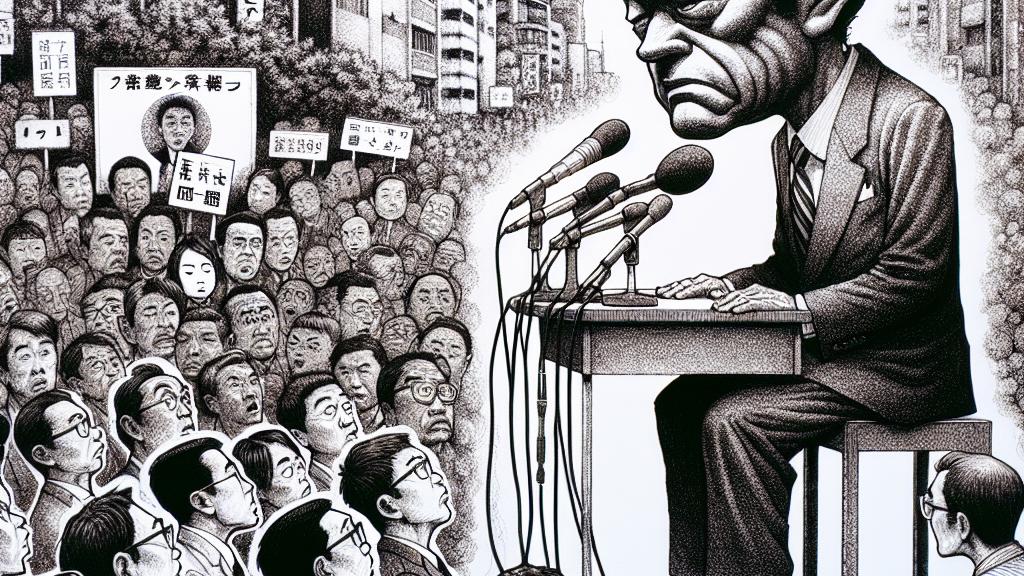Democratic Party's Tamaki Yuuichirou Apologizes for Affair
Overview
- Tamaki Yuuichirou, the leader of Japan's Democratic Party for the People, publicly confesses to an affair, sparking widespread controversy.
- The scandal, involving a former gravure idol, raises significant questions about personal ethics, the impact of personal choices on public trust, and the integrity of political figures.
- In his emotional apology, Tamaki attributes his actions to deep personal weaknesses, expressing profound regret for the pain caused to his family and supporters.

Overview of the Incident
In a stunning revelation that has sent shockwaves through the Japanese political landscape, Tamaki Yuuichirou, the prominent leader of the Democratic Party for the People, admitted to an extramarital affair with an ex-gravure idol. This confession came during a press conference held in the city of Takamatsu, where he faced relentless questioning from journalists eager to understand how a public official could falter so profoundly. With sincerity, Tamaki shared, 'The feelings I developed for someone outside my marriage expose a significant flaw in my character.' This heartfelt admission not only depicts his vulnerability but also underscores the immense pressure faced by politicians, who often must navigate treacherous waters where personal and political lives intertwine.
Public Reaction and Responses
The public's response to Tamaki's confession has been a tapestry of mixed emotions, revealing a society grappling with the complexities of human behavior and expectations for leaders. On one hand, loyal supporters quickly defended him, labeling the backlash as an insidious 'political sabotage' aimed at undermining his authority. They argue that personal imperfection should not discount his political achievements, which include his efforts to promote progressive policies and advocate for societal reform. On the other hand, many critics have voiced their disappointment, insisting that his betrayal of trust not only affects his family but also diminishes the credibility of the party he represents. One commenter poignantly remarked, 'Leaders must embody the very values they urge others to uphold, and this breach is glaring.' This incident has reignited discussions about ethical standards necessary for public office, emphasizing an expectation that politicians should lead with integrity.
Future Implications and Consequences
Looking ahead, the fallout from Tamaki's revelation could trigger substantial shifts in the dynamics of Japanese politics. He hinted at the need for a thorough reevaluation of his role within the Democratic Party, suggesting that discussions regarding his position among party members are inevitable. This scandal has broader implications, pushing citizens and legislators alike to revisit critical discussions about accountability in public service. Could Tamaki emerge stronger from this turmoil, utilizing it as a stepping stone for personal growth and redemption, or will this affair haunt him throughout his tenure? As he strives for recovery, the trajectory of his political career remains uncertain. What is clear, however, is that the public is now more vigilant than ever. They are not merely spectators; they are demanding that their leaders uphold a standard of conduct that aligns with their values. In this context, the political landscape might never look quite the same.

Loading...